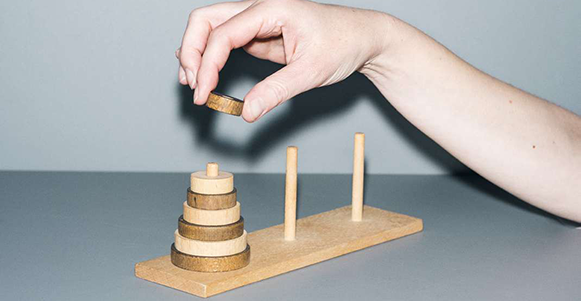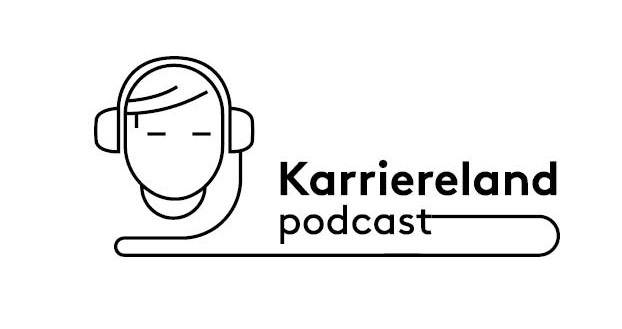- Library
-
Links
-
SDUmail - Webmail service
Outlook Web Mail -
itslearning
Access to your courses -
DigitalExam
Login to DigitalExam -
SPOC
Contact SDU - SPOC -
SDU Student Self-Service
Students can enroll into courses, exams and see results -
SDU Print
Configuration of printers and print management -
Your SDU account
Access account information, change/register SMS number and picture settings -
Reset/change password
Reset or change your password. Forgot your password? Use this service -
Library
see your status, your reservations and renew your loans -
Information Service
Displays the information passed on to services -
Vacant positions
Here you will find a list of the available jobs for instructors or student assistants at SDU
-
SDUmail - Webmail service
Read about the competencies and job opportunities that your education gives you, and get an overview of the many services we offer you to be dressed in the best possible way for your future career.
5 questions about career doubts
What can you become? Can you get a job at all? How do you find out what you are good at?
This question pops up for most students during their course of study. And it is probably also the question your mother, grandfather or friends may put to you when the talk is on programmes in the Humanities: What do you become when you have completed a programme in the Humanities?.
No matter how far you are in your programme, you’ll experience doubts about what it is all for – and whether you have chosen the right programme.
Doubt is never a comfortable feeling. But in terms of career prospects your doubt may be a good thing –it may perhaps even help strengthen both your motivation and your career prospects. You see, you may use your doubts about where your course of study is taking you as a welcome opportunity to start the process that is meant to help you find your motivation as a student and make you an attractive graduate in the Humanities.
Start out by trying to explore the following:
- Consider why your started on the programme – what motivated you? These questions may often help you clarify what actually motivates you.
- Find an answer to what you may offer a future employer. You may e.g. note which competences you have acquired so far in your course of study.
- Get in touch with former students who are now holding interesting jobs and ask how they got to where they are. You may also use LinkedIn to learn about what others with the same professional background are doing..
- Talk to fellow students and lecturers about their view on your possibilities.
- By using job banks(Jobindex, Jobnet osv.) find out what job titles and attached tasks are generally related to your academic field. Sign up with job agents and create your CV in order to get relevant job offers automatically.
- Book an appointment with a career counsellor at the Counselling and Career Center for sparring.
YES, of course you will! Employers do not employ you on your academic background alone, but also because of the unique competence profile, that you may be able to offer them. Your profile is of course a result of your professional academic background, but perhaps even more a result of how you have been dealing and working with academic matters, your experiences from both your course of study and other contexts, and of course, last but not least your personality. Therefore, two graduates with the same academic background may not have equal opportunities in obtaining a specific job. That is why it is important that you are sure about what your competences are, and are able to convey precisely what it is you in particular may contribute with.
One step at a time
Finally, remember that employers and companies vary as much as the graduates. In other words, It is all about both match and timing but also about if you are open and willing to compromise when it comes to e.g. job description, companies or organizations. Often the dream job is neither your first nor second job, but they are steps in that direction!
One way of finding out what you are good at is putting your competences to the test. You may e.g. choose to do an internship (project-oriented course), get a student job, do team work in connection with your programme or work as a volunteer. In doing so, you are bound to experience certain things you are always especially good at as well as experience things that do not get your interest. Perhaps you are good at staying organized, analyze a task at hand and cooperate. On the other hand, you may not care for tasks that need solving alone or tasks with short deadlines without the chance of preliminary analysis.
You get to know yourself better when you cooperate with others
It is not easy to determine what your strengths are on your own. Often it is in the interaction with others that you find out what they are. That is one of the reasons why practical experience in a company or an organization, working in teams and other forms of activities that require cooperation, is conducive for the process of becoming more sure about your strengths.
Create your own personal log
It may be a good idea to create a kind of log where you continuously note whenever you are successful. You may describe what led to the success and how and what competences contributed to it. The log may prove a very useful instrument when applying for jobs and describing what you are good at.
Many of us find it difficult to cope with not knowing what the future may bring. This is a normal human condition, and you are especially confronted with it when e.g. family and friends ask you what you are going to work with. You have to come to terms with the fact that you cannot expect to know what the aim is with your programme from day one. You also have to come to terms with there not being a fixed definition of ‘what jobs a person with your professional background is expected to hold’.
Your course of study is a learning process
A course of study is a long learning process during which you acquire a range of unique competences and continuously become more and more aware of what you want to do. The choices you make – and the opportunities you seize – during your course of study will contribute to your future prospects.
Fear of “ending up” in the wrong place
One of the obvious advantages about being a graduate in the Humanities is that your competences are broad and may be applied in almost all sectors. Graduates in the Humanities take advantage of that in connection with e.g. optimizing their careers, changing jobs or sectors etc. as they over time experience that their competences, interests or life situation change. Most graduates in the humanities end up with a career that no one could have predicted – because it happened along the way.
If you stay in the same firm, you may experience that from being a generalist you later become a specialist or even one with management responsibilities.
The learning process continues after graduation
Remember, that the learning process also continues after graduation. There are so many things to learn when you start your first job, and most academics are met with expectations of further education in their respective fields. You will continue to learn throughout your career.
No doubt you want a good job. But how do you find it?
Think outside the box
Where exactly is the good job? Perhaps you are familiar with companies or organizations that you like and that you sympathize with. Therefore you’d like a job there. But there is no rule saying that this is where you’ll find the perfect job. Perhaps you’ll end up finding it in a company you have never heard of – and perhaps even in a field that you didn’t know of. But you have the competences to help solve their challenges, and they offer a good place of work with challenging tasks. In an article from the journal Magistrenes about “the great job”, a graduate says, “When I graduated, I had an overconfident plan for what I was going to do and where. That was my dream. However, I have realized that the dream job may be many different places. We have to be open and curious about other fields.”
If you are able to think outside the box, you not only improve your chances of getting a job. You’ll also experience that the good job, the exciting job, may be found in many different places. That’s what graduate Sofie experienced when she applied for a job as Project Manager in starupcompany HelloMind. Read her story on Akademikerbladet´s webpage (article in Danish).
More career offers

Are you looking for a job?
SDU Jobbank is a job site for students and recent graduates. Create a profile and get started on your job search.




